Firms' uber sensitive data slipping into competitors hands
Businesses are seeing their sensitive data fall into the hands of competitors, according to a new survey.


More than a third of IT professionals believe their company's super sensitive data has been handed over to competitors, research has shown.
Ex-employees were named as the most likely source to blame for this form of information loss by 37 per cent of respondents to a poll from Cyber-Ark Software.
Human error was cited by 28 per cent of the 400 senior IT professionals surveyed from the US and UK as the next most likely source. A hack from outside the firm was seen as a less probable reason for competitors gaining company data, with just 10 per cent of respondents highlighting the threat as serious.
Over a quarter of respondents said the customer database was the most popular information being shared with competitors, followed by research and development plans in second with 13 per cent.
"It is the organisation's obligation to protect its sensitive information and intellectual property. Failing to do so, in our opinion, makes the company as bad as those who are abusing their privileged positions," said Adam Bosnian, Cyber-Ark's executive vice president for the Americas and corporate development.
"Let's face it, you might as well sell the information to the highest bidder yourself that way at least you'll have some control over who's got it," Bosnian added.
Insider snooping remains a growing problem in organisations as well, with 41 per cent of respondents admitting to using administrative passwords to spy on sensitive or confidential data. This represents an eight per cent rise from 2008 and 2009.
Sign up today and you will receive a free copy of our Future Focus 2025 report - the leading guidance on AI, cybersecurity and other IT challenges as per 700+ senior executives
The customer database was the most popular target for snoopers in the US, while those in the UK found HR records to be more attractive.
Despite this concerning trend, the number of workers who claimed to be able to get past company controls on sensitive business data fell from 77 per cent in 2009 to 61 per cent this year.
"While we understand that human nature and the desire to snoop may never be something we can totally control, we should take heart that fewer are finding it easy to do so, demonstrating that there are increasingly effective controls available to better manage and monitor privileged access rights within organisations," Bosnian added.
A recent report, sponsored by Credant Technologies, showed that IT workers are still guilty of not protecting mobile devices effectively. More than half of the IT security professionals polled admitted to not encrypting USB drives carrying company data.
Tom Brewster is currently an associate editor at Forbes and an award-winning journalist who covers cyber security, surveillance, and privacy. Starting his career at ITPro as a staff writer and working up to a senior staff writer role, Tom has been covering the tech industry for more than ten years and is considered one of the leading journalists in his specialism.
He is a proud alum of the University of Sheffield where he secured an undergraduate degree in English Literature before undertaking a certification from General Assembly in web development.
-
 Can the ‘microshifting’ trend work in the tech sector?
Can the ‘microshifting’ trend work in the tech sector?In-depth Research shows that employees want to break up their working days into short, flexible blocks – here’s how tech leaders can implement what’s being coined as ‘microshifting’
-
 Driving sustainable AI success for partners with the AI flywheel
Driving sustainable AI success for partners with the AI flywheelIndustry Insights Igniting sustainable AI success and measurable ROI for partners with the AI flywheel
-
 Datadog Database Monitoring extends to SQL Server and Azure database platforms
Datadog Database Monitoring extends to SQL Server and Azure database platformsNews The tool offers increased visibility into query-level metrics and detailed explanation plans
-
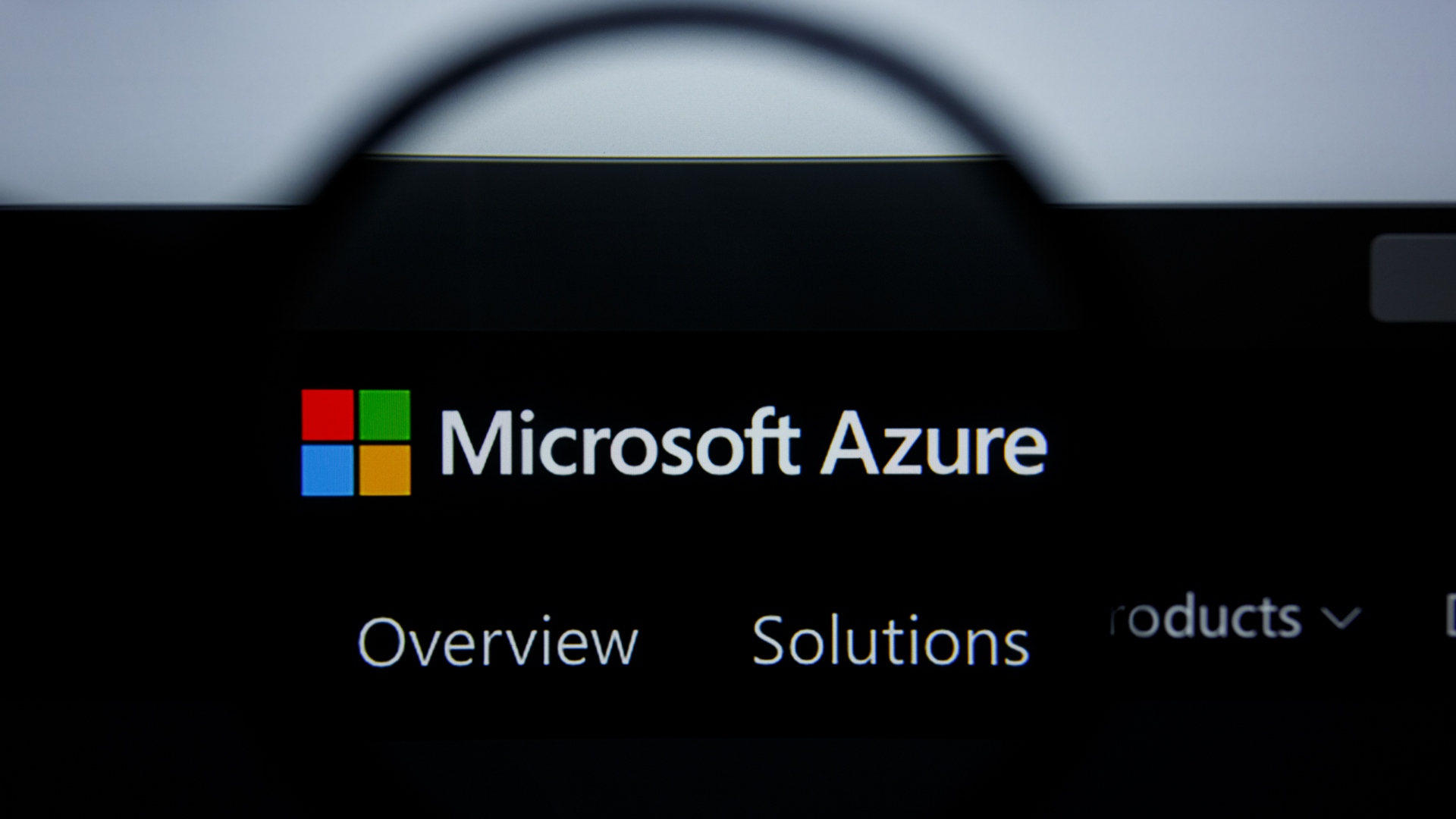 Oracle and Microsoft announce Oracle Database Service for Azure
Oracle and Microsoft announce Oracle Database Service for AzureNews Azure users can now easily provision, access, and monitor enterprise-grade Oracle Database services in Oracle Cloud Infrastructure
-
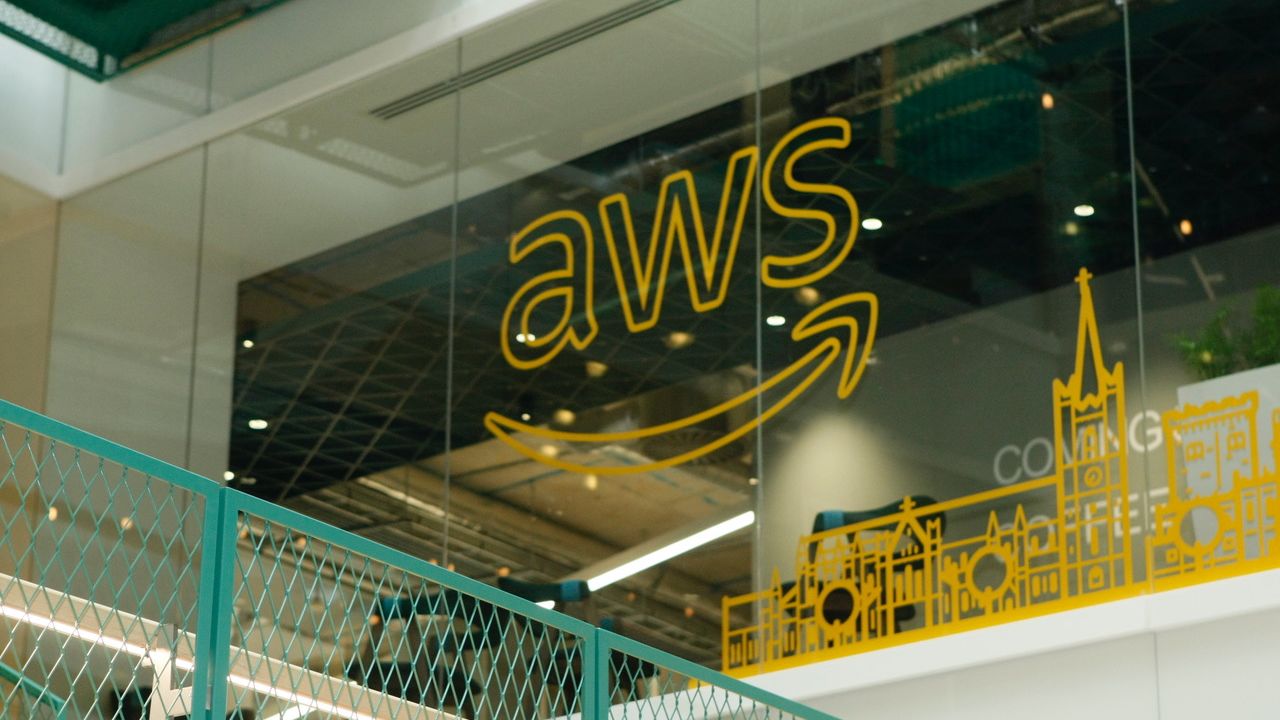 Elastic expands cloud collaboration with AWS
Elastic expands cloud collaboration with AWSNews Partnership aims to ease migration to Elastic Cloud on AWS, as well as simplify onboarding and drive go-to-market initiatives
-
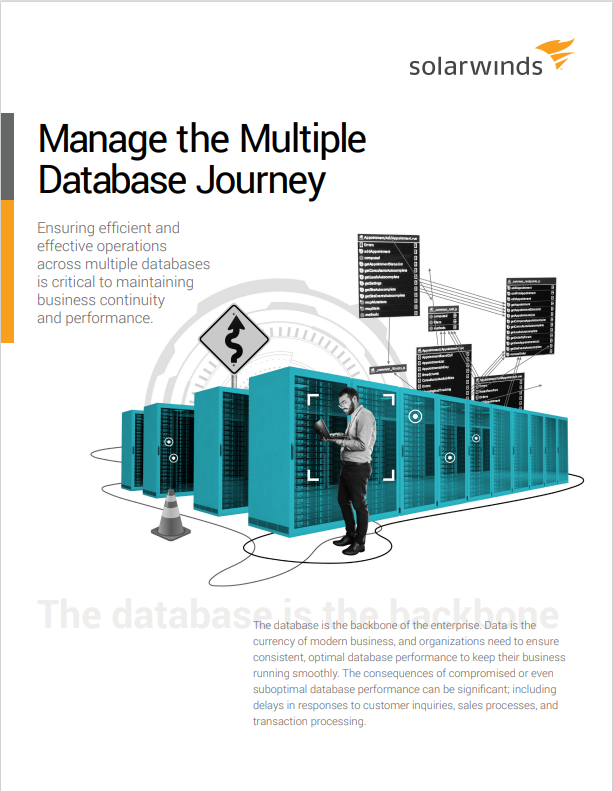 Manage the multiple database journey
Manage the multiple database journeyWhitepaper Ensuring efficient and effective operations across multiple databases
-
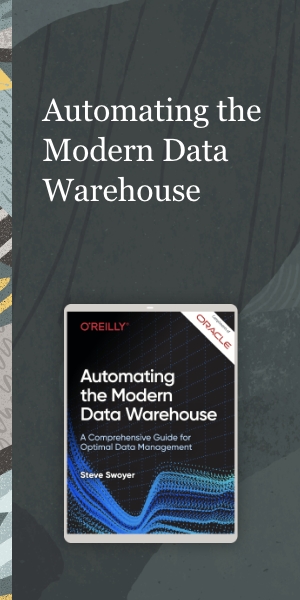 Automating the modern data warehouse
Automating the modern data warehouseWhitepaper Freedom from constraints on your data
-
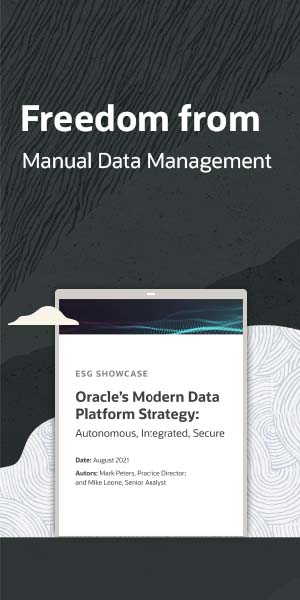 Freedom from manual data management
Freedom from manual data managementWhitepaper Build a data-driven future with Oracle
-
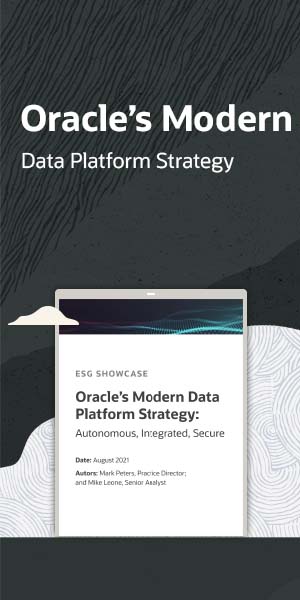 Oracle’s modern data platform strategy
Oracle’s modern data platform strategyWhitepaper Freedom from manual data management
-
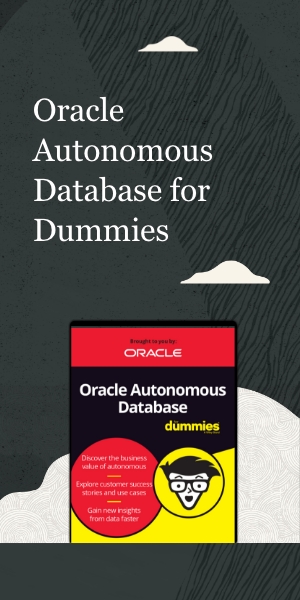 Oracle autonomous database for dummies
Oracle autonomous database for dummiesWhitepaper Freedom from mundane, manual database management
